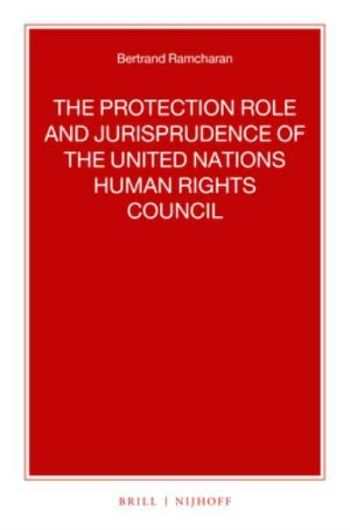
This book places under scrutiny for the first time, whether, and how, the United Nations Human Rights Council actually contributes to the protection of human rights in the face of pervasive gross violations world-wide. It finds that the Council does little of preventive protection, some mitigatory protection, and little remedial or compensatory protection. The Council's response to situations of gross violations depends on the political alignments within its membership for each situation. The Council gives priority to cooperation and dialogue over principled denunciations of gross violations. It is not an organ of justice, but in some instances it is an organ for justice, inasmuch as it addresses the structural causes of violations. Much useful fact-finding takes place under the auspices of the Council, and it does contribute to the progressive development of international law.